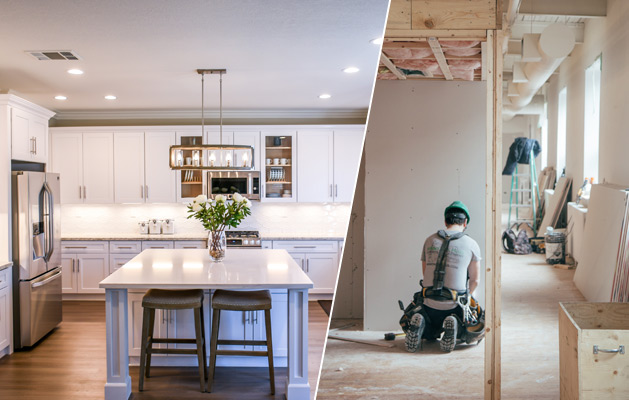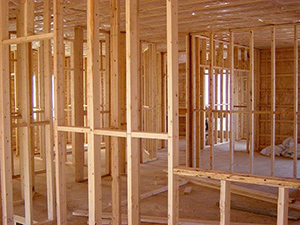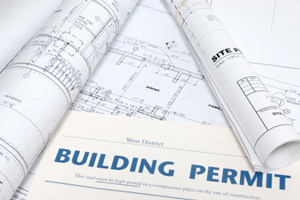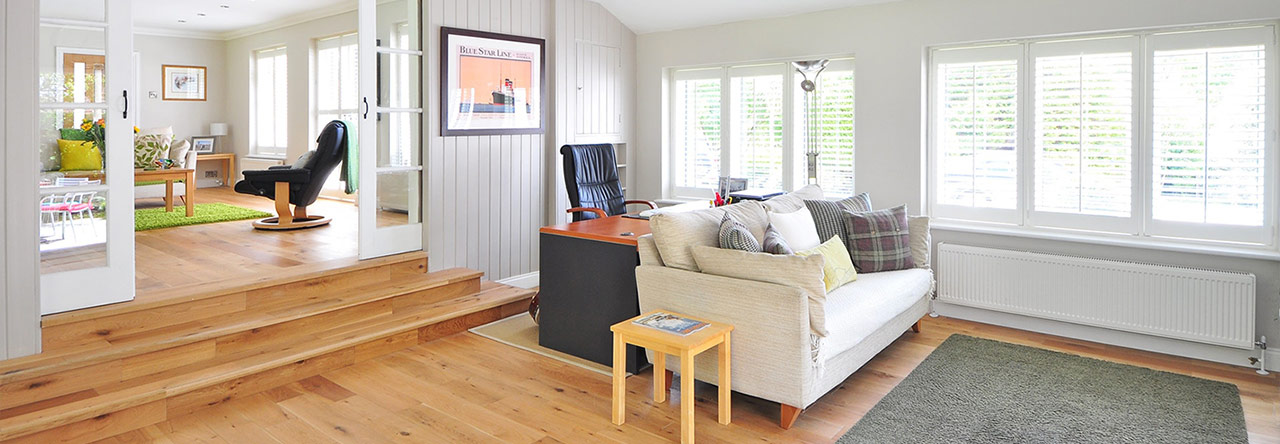
Avoid being assessed penalties and fines when you want to renovate or remodel your property. By knowing the difference and implications of renovating vs. remodeling, you can make informed decisions when it’s time to upgrade your property.
domestic-construction.com gathered the following information to help you determine whether you need to remodel or renovate and what each one entails.
The Definition of Renovate
To renovate a room, house, or building is the process of restoring it to a good state of repair. During a renovation, rooms and other spaces maintain their structure and essential purpose. The following are activities that may take place during a renovation:

• Refinishing walls and/or ceilings
• Painting
• Structural repairs
• Carpeting or flooring repairs and replacement
Renovation can be defined as restoring or repairing an existing structure without altering the function of the space being renovated.
The Definition of Remodel
To remodel a room, house, or building is the process of improving, transforming, or altering the purpose of the existing layout and design of that space. The following activities may occur during a remodel:

• Transforming a garage into a bedroom
• Making a bedroom into a home office
• Relocating a sink or toilet to optimize bathroom space
• Adding wheelchair access features to entryways
• Structural changes
While a renovation keeps the existing structure and purpose, a remodel changes or transforms it into something else.
Which Is Cheaper – A Renovation or A Remodel?
Typically, a renovation is much cheaper than a remodel. Here’s why:
Renovations – A renovation in many cases can occur as a DIY project or one that requires little material or labor.

Roof replacements are very expensive and considered a renovation project because the design and function are not changed. Permits are required, however, since the poor installation of a roof can cause significant damage to the property’s structure.
Another example of an expensive renovation requiring a permit is the replacement of rotting wood within the structure of the property. Since the purpose of the structure is not being altered, this is considered a renovation.
Remodeling – Remodeling projects are much more involved, as they may include changing the physical structure of the property. When remodeling, wiring, ductwork, and plumbing must often be reconfigured to serve the new layout/format of the structure. The following are expenses that increase the cost of a remodel:

• Professional labor (Always verify the credentials of contractors)
• Higher material cost
• Permit application fees
• Creation of new (updated) blueprints and floor plan
Remodeling almost always requires that you apply for a permit while renovating seldom does. An example of a renovation requiring a permit is a roof replacement.
Tip: Before beginning any renovation or remodeling project, evaluate the cost by getting quotes from contractors or researching material costs. With this knowledge, you can spread projects out over time (according to your budget) and avoid incomplete or unfinished work.
Pros And Cons of Renovations And Remodels
While gaining extra space or updating your property may seem like an excellent investment, there are some pros and cons to take into consideration:
Pros of Renovating:

• Updated appearance
• Fix structural problems
• Updated fixtures
• Inexpensive (in most cases)
• Many renovations can be DIY projects
• Can increase curb appeal
• May increase the value of your property
• Renovations are generally tax-deductible
Cons of Renovating:
• Most renovations are cosmetic in nature and may hide more significant issues
• Some renovations can come close to, or equal the property value (roof replacement and extensive structural damage repair)
• Increasing your property value may cause property insurance premiums to increase
Pros of Remodeling:
• You get to reconfigure or redesign your space the way you want
• If you create office or workspace, this new or repurposed space may qualify as a business tax write-off
• May increase the value of your property
• Most remodeling projects are tax-deductible
Cons of Remodeling:

• Can be substantially more expensive than a renovation
• Almost always requires a building or construction permit
• Construction may last for weeks (or longer in some cases)
• Increasing your property value may cause property insurance premiums to increase
Note: If your intent is to increase your property value, beware of the investment you make. In the majority of renovations and remodels, the increase in property value is substantially less than the amount invested in the upgrade.
Tip: Hire a property appraiser to inspect and evaluate your property’s value before renovating or remodeling. Then inquire about which areas of property improvement offer the best ROI (Return On Investment). With this information, you can prioritize which projects to invest in.
Tip: Visit your city’s website or call them to inquire about their permitting procedure and application cost.
Renovate or Remodel

In this article, you discovered differences between a renovation and a remodel, their financial implications, and their pros and cons.
By knowing the difference between a renovation and a remodel, you can better communicate with and direct the work of contractors working on your property.
When you initiate a project including remodeling without knowing what is needed, you may be subjecting yourself to substantial penalties and fines imposed by your city’s building authority.
Sources:
consumerreports.org/home-improvement/home-renovation-without-aggravation/
bobvila.com/articles/renovation-vs-remodel/
realsimple.com/home-organizing/home-improvement/renovation-vs-remodel-definition
